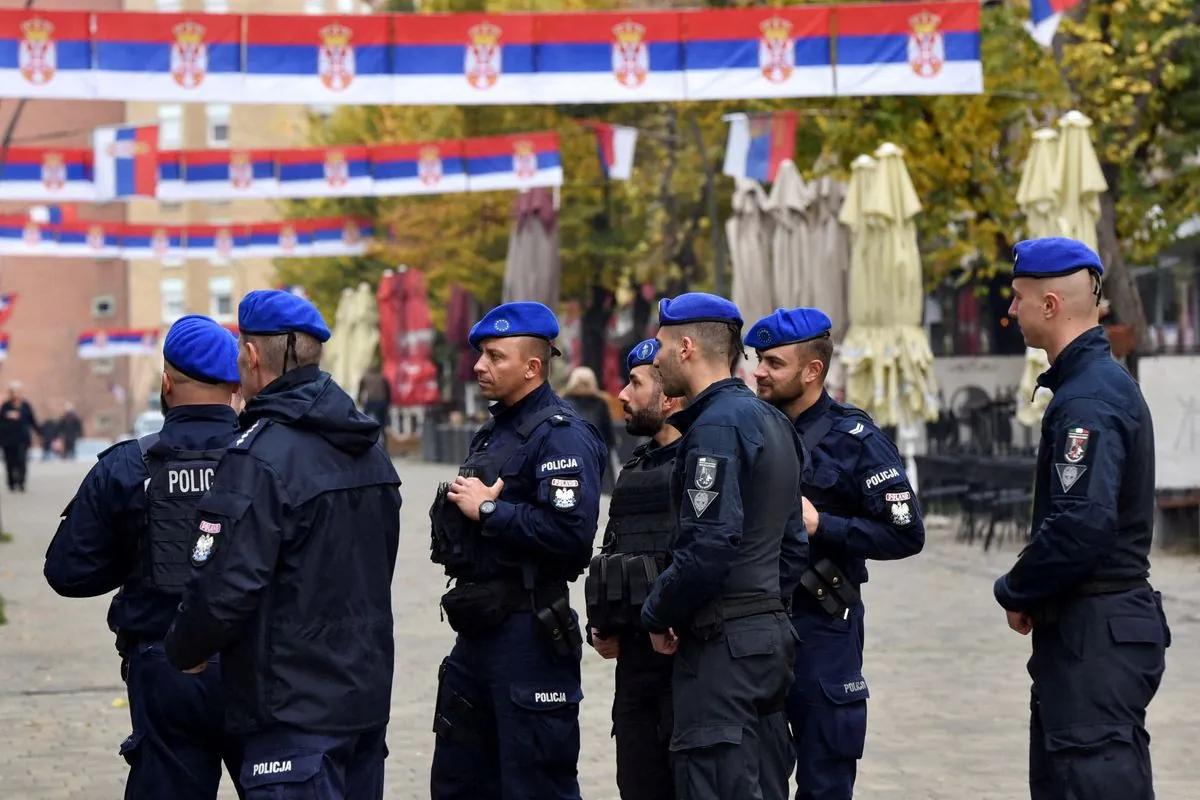Kosovo Charges 45 Over 2023 Gunfight, Including Serbian Politician
Kosovo prosecutors have filed charges against 45 individuals, including a prominent Serbian politician, for a 2023 gunfight involving Serb gunmen. The case heightens tensions between Kosovo and Serbia.

Kosovo authorities have taken legal action against 45 individuals in connection with a violent incident that occurred approximately one year ago. The charges stem from a gunfight in September 2023, which resulted in the deaths of a Kosovo police officer and three Serb gunmen in the village of Banjska.
Milan Radoicic, a prominent Serbian politician and businessman with connections to Serbia's ruling party and President Aleksandar Vucic, is among those charged in absentia. Prosecutor Naim Abazi identified Radoicic as the alleged leader of the group, stating he "has played an important role in coordinating and in the criminal activity."
The accused face serious charges, including violation of constitutional and legal order, terror activities, funding terrorism, and money laundering. If convicted, they could potentially face life imprisonment.

This case has been described by Abazi as the "most complex they have ever had," highlighting the close cooperation with international institutions, the European Union, and the United States in building the charges.
The incident has further strained relations between Kosovo and Serbia. Kosovo has accused Serbia of involvement, while Belgrade has denied any connection, stating that Radoicic and his group acted independently.
"Radoicic and his group acted on their own."
The European Union and the United States have called for Serbia to bring the perpetrators to justice. They are also pressing both sides to implement agreements reached in early 2023 between Vucic and Kosovo Prime Minister Albin Kurti. These agreements include Kosovo's commitment to establish an Association of Serb-Majority Municipalities and Serbia's de facto recognition of Kosovo.
This case highlights the ongoing tensions in the region, rooted in a complex history. Kosovo, which declared independence from Serbia in 2008, is still considered a province by Belgrade. The Kosovo War, lasting from 1998 to 1999, ended with NATO's 78-day intervention, resulting in approximately 13,000 casualties, primarily ethnic Albanians.
Since then, international peacekeeping forces, such as the NATO-led KFOR, have maintained a presence in Kosovo. Recent events, including the closure of Serbian-licensed bank branches and disputes over municipal institutions in Serb-majority areas, have further complicated the situation.
As the legal proceedings unfold, the international community continues to urge both Kosovo and Serbia to work towards normalization of relations, a process that has been ongoing since the Brussels Agreement of 2013. The outcome of this case may have significant implications for the future of Kosovo-Serbia relations and stability in the Balkans.


































